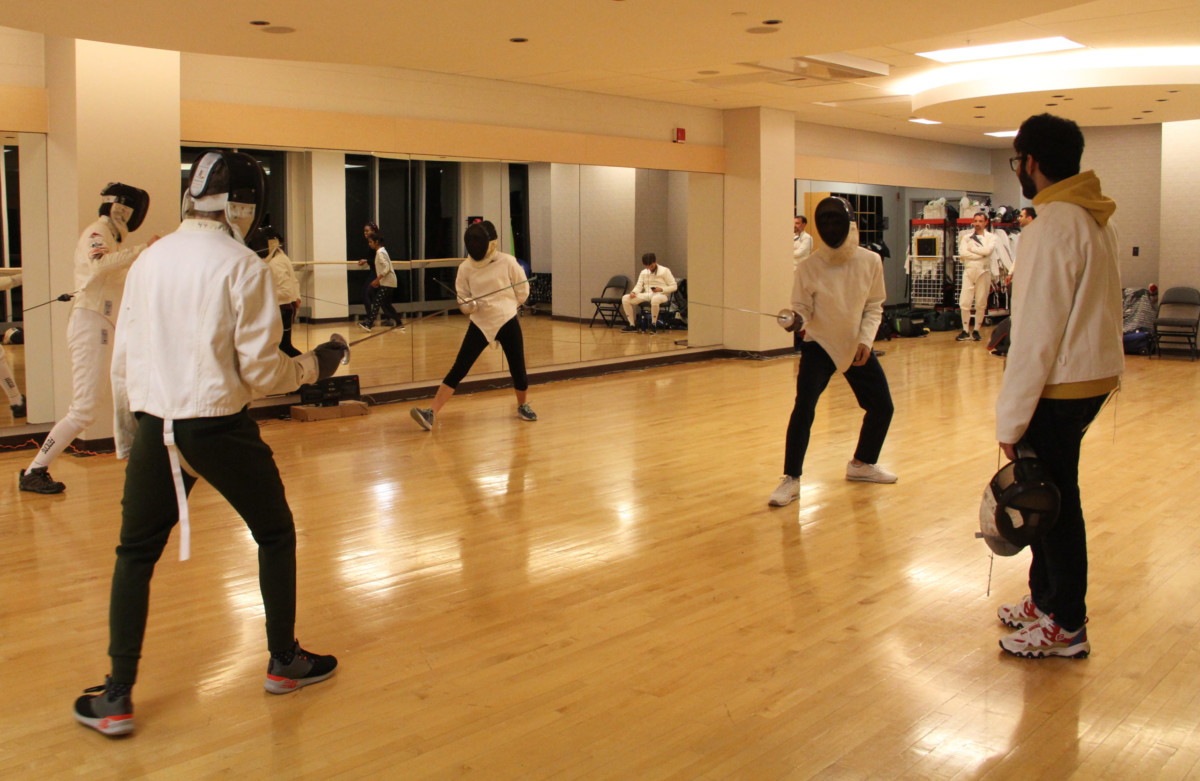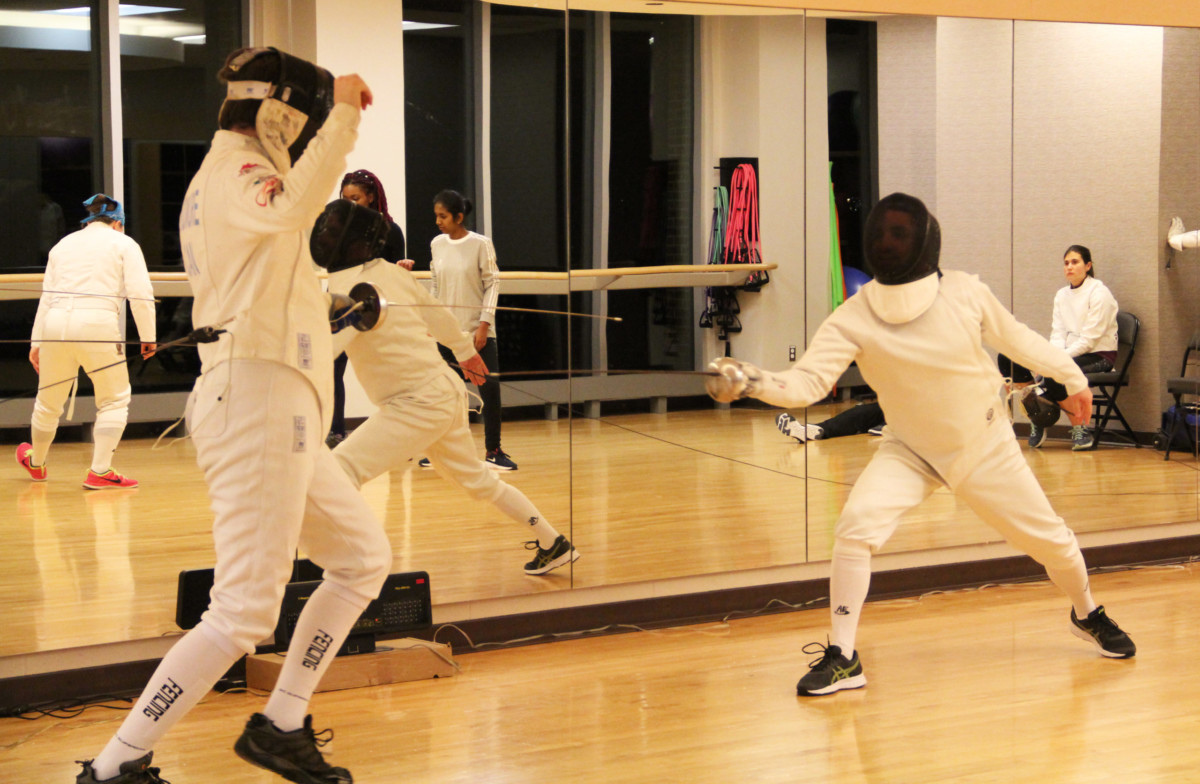Fencing may not be the first sport that pops into your head when you think about University of New Brunswick sports. But for UNB grad Melodie Piercy, fencing is her passion.
“I was looking to pick up a sport and wanted to try something new. I saw a poster for fencing, so I decided to give it a try and [I] fell in love with it,” Piercy said.
Piercy started in 2005 when she was still in university and when the club was still at the Lady Beaverbrook Gym. Today, the club practices at the Currie Centre.
Piercy, who took on the coaching role when there was an opening in 2012, mainly trains in épée, which is the heaviest of the three weapons used in fencing.
Épée is one of three disciplines in modern fencing. The other two are foil and sabre.
As a coach, she developed a 10-week beginner program for new members which introduces them to the basics of fencing. The program is available during the fall and winter terms.
Since Piercy began her role as a coach, she’s taken a step back from her training. But she hopes to return.
“I hope to get back into competition as it is quite fun,” she said.
“This is truly a sport you can do for life.”
The club began in 1966 with the late Alfred Knappe as the club’s first coach. Knappe’s plaque now hangs in the studio where members fence. Knappe also founded the provincial fencing organization, now known as Fencing-Escrime NB. They have an annual tournament in his name.

UNB grad David Themens’ brother introduced him to fencing in 2000. He fenced during his seven years at Dalhousie University and took his talents to UNB in 2007 while earning his undergrad. In 2013, two years after completing his undergrad, he came back for his PhD and subsequent contract work.
“I never really liked team sports or traditional sports, so fencing was a pretty attractive option for me,” Themens said.
“Fencing is often referred to as ‘physical chess.’”
The way to score in fencing is to touch your opponent with your weapon. Each player is required to wear equipment which is checked by the referee each match to make certain they are up to safety standards. There are multiple tactics such as lunging, a parry, which is a defensive move and a riposte, which is a counterattack.
Over his 20 year career, Themens has captured a few awards. He’s won provincials twice, in 2015 and 2016, as well as winning a silver and a bronze. He was the captain of the 2010 UNB Atlantic University Championship team and his top individual placement at nationals is fifth, having accomplished so twice in 2016 and 2017.
Themens won gold in the 2018 Moncton Open.
Themens likes fencing because of its uniqueness. He said it isn’t a traditional sport and it requires more strategy rather than physical prowess.
“Fencing is an incredibly unique sport that can be both a physical workout and a strategic challenge,” Themens said.
“For anyone who doesn’t like traditional sports, this is the place for you.”

